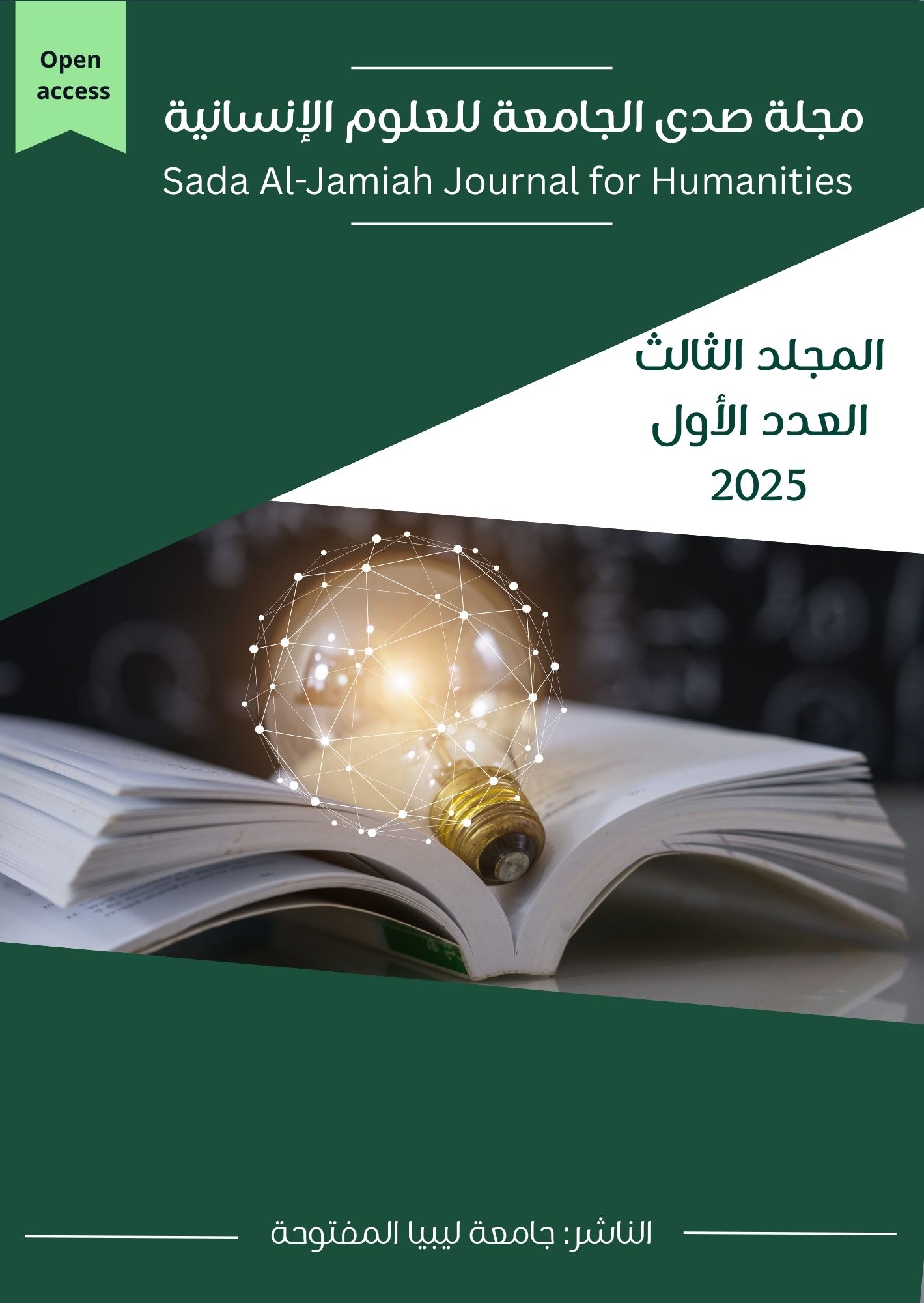Enhancing English Language Learning through Artificial Intelligence: A Practical Framework for Improving Writing Accuracy, Feedback Quality, and Learner Autonomy
DOI:
https://doi.org/10.65422/sajh.v3i1.66الكلمات المفتاحية:
Artificial Intelligence، EFL Writing، Writing Accuracy، Feedback Quality، Learner Autonomy، Automated Feedbackالملخص
Writing in English is challenging for many adult learners of English as a Foreign Language (EFL). Errors in grammar and style persist, and traditional teacher feedback often comes with delays. Artificial intelligence (AI) offers new possibilities to enhance writing instruction by providing immediate, personalized feedback. This paper presents a practical framework for integrating AI into EFL writing pedagogy to improve writing accuracy, feedback quality, and learner autonomy. The framework combines AI-driven tools for instant corrective feedback with guided revision and teacher support. A mixed-method evaluation was conducted with adult EFL learners globally to assess the framework’s effectiveness. Quantitative results show that learners who received AI-assisted feedback achieved higher grammatical accuracy and made more revisions to their writing than those with only teacher or no feedback. The AI-supported group’s writing improved not only in error reduction but also in content organization and coherence, while their autonomy scores (self-directed learning measures) increased significantly. Qualitative feedback from learners indicates reduced anxiety, greater confidence, and a preference for a blended feedback approach. These findings suggest that carefully deployed AI tools can act as effective “digital writing coaches,” improving the precision of writing and empowering learners to take more control of their learning. The paper discusses pedagogical implications, such as the need for teacher moderation and strategies to prevent overreliance on AI.
المراجع
1. Ali, Z. (2020). Artificial intelligence (AI): A review of its uses in language teaching and learning. IOP Conference Series: Materials Science and Engineering, 769(1), 012043. DOI: 10.1088/1757-899X/769/1/012043
2. Alnemrat, A., Aldamen, H., Almashour, M., Al-Deaibes, M., & AlSharefeen, R. (2025). AI vs. teacher feedback on EFL argumentative writing: a quantitative study. Frontiers in Education, 10, Article 1614673. DOI: 10.3389/feduc.2025.1614673frontiersin.org
3. Guo, K., Pan, M., Li, Y., Lai, C., et al. (2024). Effects of an AI-supported approach to peer feedback on university EFL students’ feedback quality and writing ability. The Internet and Higher Education, 63, 100962. DOI: 10.1016/j.iheduc.2024.100962repository.hku.hk
4. Mansoor, K. R., Mousavi, K., & Shokri, A. (2025). Investigating the Effects of AI and Teacher-Based Explicit Correction on Learner Autonomy and Grammatical Accuracy. journals.bilpubgroup.com
5. Mekheimer, M. (2025). Generative AI-assisted feedback and EFL writing: a study on proficiency, revision frequency and writing quality. Discover Education, 4, Article 170. DOI: 10.1007/s44217-025-00602-7link.springer.comlink.springer.com
6. Mohammed, S. J., & Khalid, M. W. (2025). Under the world of AI-generated feedback on writing: mirroring motivation, foreign language peace of mind, trait emotional intelligence, and writing development. Language Testing in Asia, 15, Article 7. DOI: 10.1186/s40468-025-00343-2languagetestingasia.springeropen.com
7. Chen, Z., Chang, S., Wei, W., & Lam, C. Generative AI-generated Feedback on Learning-oriented Reading Assessment at K-12 Level: Diverse Teacher and Student Insights.researchgate.net
8. Rad, H. S., Alipour, R., & Jafarpour, A. (2024). Using artificial intelligence to foster students’ writing feedback literacy, engagement, and outcome: A case of Wordtune application. Interactive Learning Environments, 32(9), 5020–5040. DOI: 10.1080/10494820.2022.2153784journals.bilpubgroup.com
9. Benson, P., & Voller, P. (2014). Autonomy and independence in language learning. Routledge. (Original work published 1997).
10. Salah Faraj Abdalhfed, & Mohamed Abdulla Ahmida Abdulnabi. (2025). Exploring the Body and Memory in Exile: Somatic Trauma in Isabel Allende’s in the Midst of Winter. Sada Al-Jamia Journal for Humanities, 3(1), 124-139.
11. Aisha Mohamed Ahmed (2025). Exploring Code-Mixing and Code-Switching in Bilingual English Speakers. Comprehensive Journal of Humanities and Educational Studies, 1(1), 01-10
12. Aisha Mohamed Ahmed (2025). Comparative Analysis of Formative Assessment Strategies and Their Impact on Student Performance and Engagement. Journal of Scientific and Human Dimensions, 1(1), 01-09.
13. Mohamed Belrzaeg (2025). Learning Analytics in E-Learning: Predicting Student Success through Data. Journal of Scientific and Human Dimensions, 1(1), 10-18.
14. Karima Alfitory Ahmed. (2024). Prevalence and Awareness of Aphthous Ulcers Among Libyan University Students . Libyan Journal of Contemporary Academic Studies, 2(2), 35-44.
15. Aisha M. Ahmed. (2025). Examining the Effectiveness of Distance Education: Challenges, Opportunities, and the Future of Learning. Libyan Journal of Educational Research and E-Learning (LJERE), 1(1), 23-30.
16. Asma Issa Karwad. (2025). Challenges Students Encounter When Translating Idiomatic Expression. A Case Study of Faculty of Education Students. Journal of Libyan Academy Bani Walid, 1(2), 229–242








